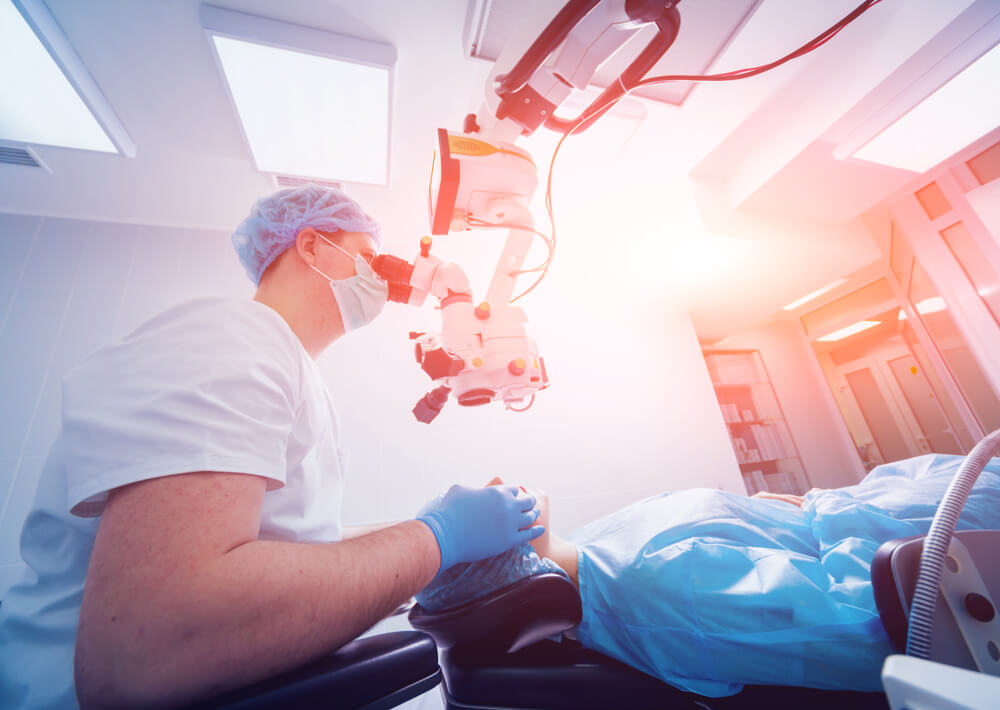
When to get LASIK to ensure the best outcome? When it comes to LASIK eye surgery, patients should be pleased to know that there’s no age limit. Still, all those who want to undergo surgery should keep in mind that FDA regulations require every patient to be at least 18 years old. This is a genuine concern for those who want to regain their freedom by restoring their vision to its former glory.
After learning about the LASIK age limit, the next question that comes to the patient’s mind is usually “has my vision been stable for a while now?” – which is the right question to ask. When it comes to laser eye surgery, vision stability is the most pivotal factor in determining when it is the right time to get LASIK.
So, let’s settle the question of “when to get LASIK” once and for all – and after determining whether you’re eligible age-wise, feel free to visit our Laser Eye Surgery Center in New York to discuss your options. Our Manhattan Lasik Center is equipped with the latest cutting-edge diagnostics to help guide you to the best vision correction surgery for you.
Is There A LASIK Age Limit?
As mentioned above, the age limit for the procedure pertains to the FDA regulation that states that those who undergo Lasik eye surgery must be 18 or older. From an expert standpoint, vision stability is a more critical factor in determining the timing of laser eye surgery for any individual patient.
During your appointments, your ophthalmologist will perform a refraction test to measure the amount of nearsightedness, astigmatism, farsightedness, or a combination of these that you may have. This means that your doctor will run a few tests to ensure that your prescription hasn’t changed significantly. On that note, eye experts usually recommend laser eye surgery after they see that your contact lens and/or glasses prescription hasn’t changed for at least a year (or two). This is paramount in ensuring that the surgery results will serve you well in the long run.
Again, there is no “best age to get LASIK” as there’s no age limit to the surgery. As long as you qualify as a good candidate and you are in good ocular and general health, nothing should stand between you and the potential for sharp vision. Still, some experts recommend undergoing surgery earlier in life because patients could enjoy the results for longer and will therefore avoid known time-dependent complications of contact lens wear, such as progressive dry eye, blood vessel growth in and around the cornea, and contact lens-related corneal infections, just to name a few.
What Is The Best Age To Get LASIK?

As we already cleared above, there’s no set LASIK age limit. Generally, doctors recommend getting laser eye surgery as early as possible (if the prescription is stable and the patient is a good candidate). Still, there are some pros and cons to having the procedure at various life stages.
Getting LASIK in Late Teens and Early Twenties
When to get LASIK? While most experts recommend getting it at a younger age, your refraction may still change in your early twenties and late teens. However, if your eye care professional determines your prescription has remained stable for some time – at least a year or more, then Lasik surgery may be the best option to obtain visual freedom without being a slave to glasses or contact lenses, which as mentioned above, are not a healthy option for your eyes in the long term.
Getting LASIK In The Mid Twenties and Thirties
When it comes to defining the best age to get LASIK, most experts would say that your twenties and thirties are definitely an excellent time to get laser eye surgery. At this age, your prescription will generally be stable, and if you’re not showing any signs of presbyopia, then distance vision correction for both eyes makes sense. Presbyopia is the condition where your eyes start to experience difficulties when focusing on objects near to you. Still, developing presbyopia in this age group is extremely rare as it usually develops in our mid to late forties.
Getting LASIK in Your Forties
This is the life stage when patients might develop presbyopia which can lead to difficulties when focusing on objects up close. While laser eye surgery can still provide excellent visual outcomes, it’s possible you may still need reading glasses to see near objects clearly. So, if you are in your forties or fifties and considering LASIK, this is something you should keep in mind. That said, for those in this age group who wish to see better at a distance and near, monovision is a wonderful option and provides middle-aged patients a chance to be glasses-free for most activities. It’s important that your eye care professional perform a monovision trial to test your tolerance of monovision, as one eye will be targeted for near and the other (the dominant eye) for distance and while most people tolerate the disparity, a few do not so this way you’ll know if it works for you.
Getting LASIK In Your Fifties and Over
By this time, presbyopia will be in a more advanced condition, meaning that focusing on objects near you will be even more challenging. As mentioned above, to compensate for the effects of presbyopia, some people who wish to undergo refractive laser eye surgery will want to choose monovision.
As stated above, monovision is a procedure where one eye is corrected to see things that are up close, while the other is corrected to see at a distance. This can be a solution for those who want to see both up close and far, but while this is a terrific option for many older patients, this type of surgery isn’t for everyone, so it’s best to consult your doctor to determine whether it’s an option for you.
Also, several other eye health problems may start to cause more trouble in this life stage. Patients in this age group may develop cataracts, dry eyes, and other conditions, so it’s important that the clinic you choose has cutting-edge diagnostics to detect these conditions before considering Lasik.
On that end, laser eye surgery may aggravate dry eyes, meaning that patients who are currently experiencing these problems might need to get adequate treatment for this issue first before they choose to undergo LASIK. This is essential for ensuring the best outcome. Similarly, cataracts may also need to be adequately addressed before the patient may undergo LASIK to ensure that the end results will be satisfactory. If you already suffer from dry eyes, of which contact lens intolerance is a common symptom, it’s important to consult with an ophthalmology practice like Diamond Vision, which has cutting-edge diagnostics and therapies to help manage and improve your dry eye.
So, What is The Best Age To Get LASIK?
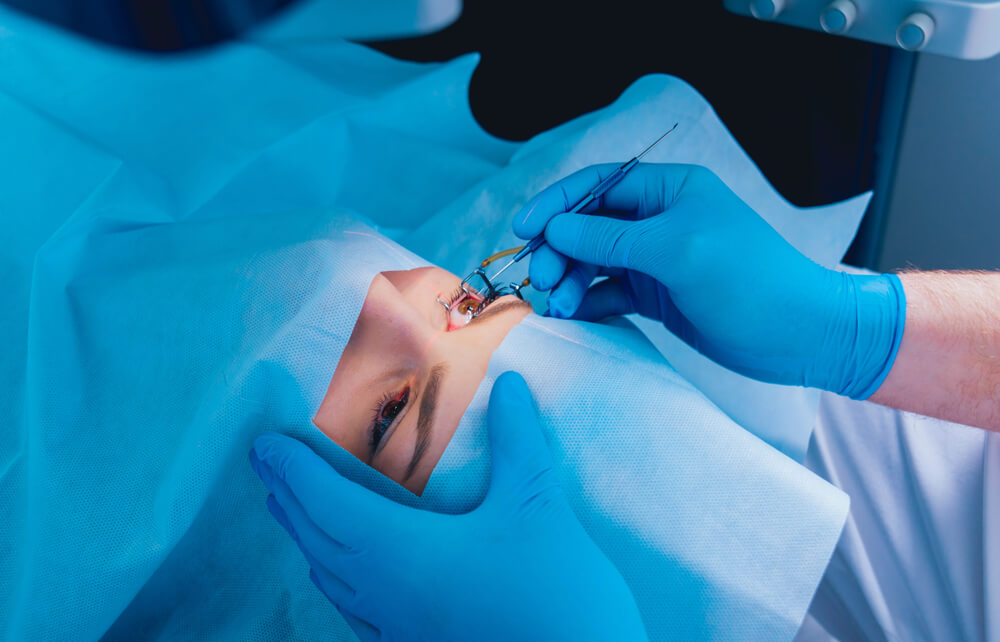
If there’s a definite best time for undergoing LASIK, some might argue it’s the earlier the better as long as your prescription is stable. This generally happens in one’s twenties but it might even happen earlier, such as in late teens. and the sooner one gets Lasik, the sooner they’ll likely stop using contact lenses which have been shown to do long-term damage to the cornea and adjacent structures, increasing dry eye risks. Still, that doesn’t mean you won’t get stellar results in your forties or fifties. The main thing you and your doctor need to focus on is whether your prescription has been stable long enough up to that point and if you are in good general health to undergo the procedure.
Correct Your Vision – You’re Never Too Late
So, to recap: generally speaking, you can get LASIK whenever you like, as long as you are over 18. The best time might be in your twenties because you are less likely to have developed other vision problems by that point, and you can enjoy the results of the surgery for much longer. Still, this doesn’t mean that you can’t opt for such a procedure earlier or later in life. As long as your prescription measurements are stable and you are in good general health with a satisfactory medical history, doctors will probably recommend having LASIK.
Still, if you have any doubts about whether you are a good candidate for the procedure or not, it’s always pivotal to consult an expert ophthalmologist first. A seasoned expert will help you determine the best way to get your vision back.
To that end, feel free to schedule an appointment with us so we can guide you to the best options that will help you in your quest for visual freedom.
Contact Us
If you have more questions about LASIK procedures, get in touch with us.
Related Blogs
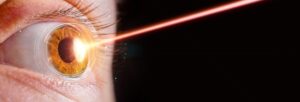
Who Should Not Have Laser Eye Surgery
Laser eye surgery, commonly known as LASIK (Laser-Assisted In Situ Keratomileusis), has revolutionized the world of vision correction. It’s a procedure that has enabled millions
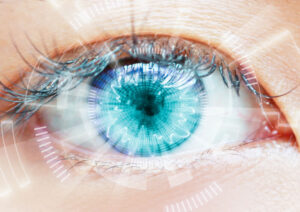
LASIK eye surgery: What is LASIK and how does it work?
What Is LASIK? Experts categorize LASIK as a refractive eye surgery in which lasers are used to correct vision problems. LASIK corrects several refractive errors,
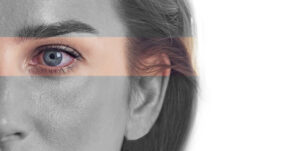
Everything You Need To Know About The Lipiflow Treatment
LipiFlow is often referred to as a ground-breaking technology that is able to treat dry eye issues caused by meibomian gland dysfunction, or MGD. Experts
